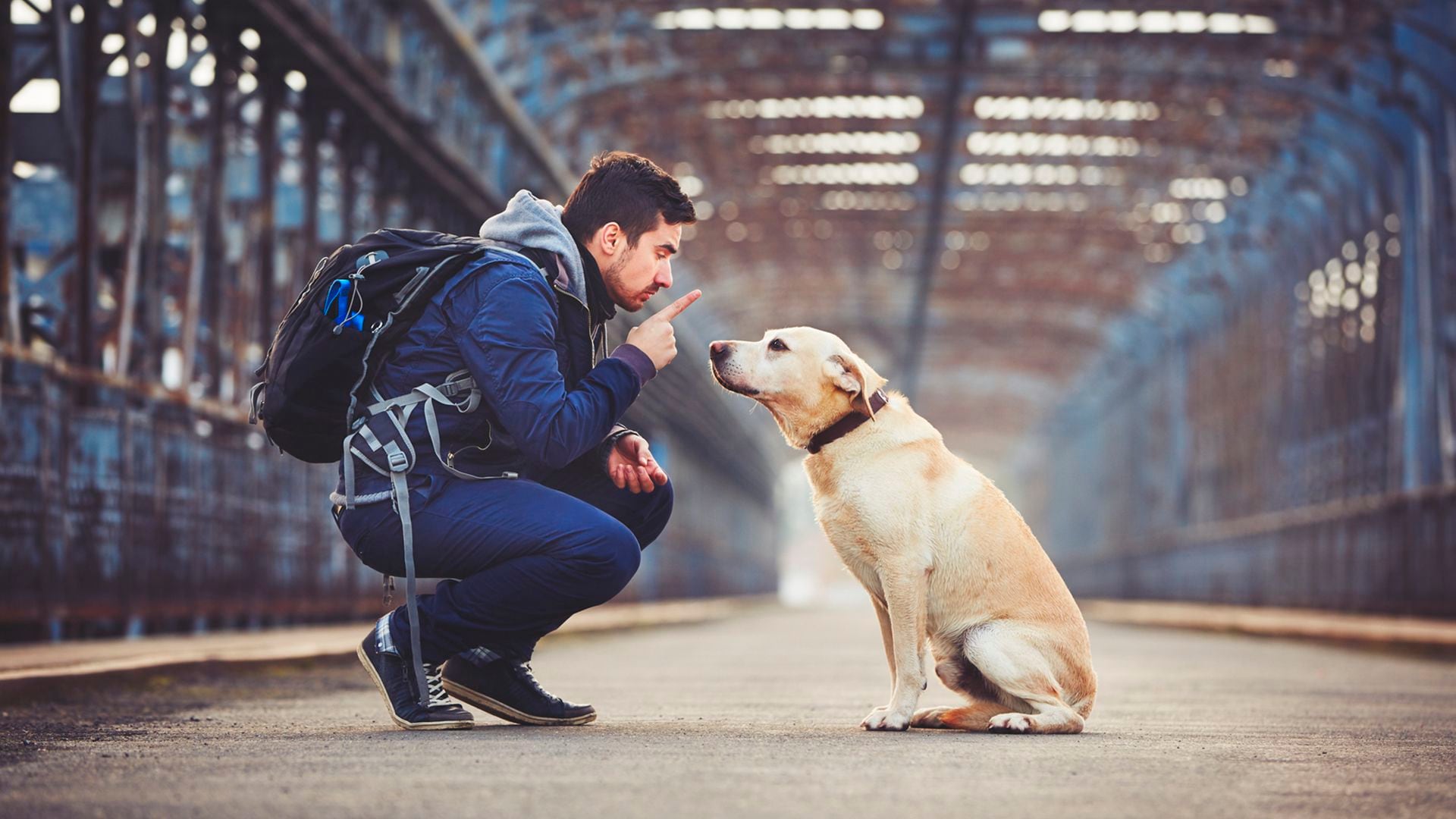
There is a lot of discussion about whether the dog has intelligence or not, whether it thinks or not, whether it has reasoning or just instinct. But the only thing certain is that the dog is, perhaps, the only species that has accompanied us so closely linked and so widely distributed, in the wandering of our human species, so traveling, so destructive and so particular.
The poet, Lord Byron, had a Newfoundland dog named “Botswain” for which he wrote the most beautiful epitaph that a dog has ever deserved from a man, he said: “Here lie the remains of a being who possessed beauty without vanity, strength without insolence, courage without ferocity and all the virtues of a man without his vices”.
If someone had explained to the poet that, while he was making his last offering to “Botswain”, in truth the behavior of the most faithful being he knew was only a human “pollution”, an anecdotal anthropomorphism seen by man and created by his imagination, he would have been very upset at the refusal , unreasonable and gross, of not recognizing canine manifestations of happiness, gratitude or displeasure so similar to ours.

In the early 1990s, ethologist Elizabeth Marshall Thomas presented a work based on twelve years of research and 200,000 hours of observing life, what the eleven dogs of her family thought and felt.
Thanks to research, it was then assured that dogs are more than animals that bark, run, smell and urinate, without them being human beings in disguise. According to the study, they have a rich inner life, they are saddened, calculated and have complex needs, customs, hopes, fears and fantasies.
This means that they have sensitivity and feelings, deeper than those of many humans who laugh at them so smugly.
It was the great Charles Darwin, scientist and naturalist, the first to refer to the emotions of animals, since he considered them very important in determining human evolution. In 1859, in his work “On the Origin of Species”, he said that it is difficult to doubt that man's love has not become instinctive in dogs.

Certain moral and intelligent qualities have developed in animals at the mercy of life in common with man. Moral qualities such as affection, loyalty and even a certain type of intelligence, have had to develop over millennia of years of living with human beings.
It is now known that the dog appeared on Earth about 35,000 years ago, more days, days less. Although some claim many tens of thousands of years more.
The dog, a descendant of the wolf, with whom he had to have rather complex relations, was the companion of the Neanderthal man and ended up being the most faithful companion of the supposedly best gifted man of Cromagnon.
Specifically, a team of researchers from the University of California at Los Angeles, led by Professor Robert Wayne, has compared the mitochondrial DNA of 162 wolves from 77 different canine families spread across the planet, as well as 140 domestic dogs representing 27 different breeds. Their DNA sequences don't differ much.

When René Descartes, a seventeenth-century philosopher, considered thought to be the essence of human existence and the dog a variant of machine devoid of reason, François Voltaire, a writer and philosopher, came to the meeting to affirm that dogs not only feel emotions, but that they “prodigiously follow man in the sense of friendship”.
By way of reflection, it is appropriate to quote the phrase of the ineffable doctor and theologian of the nineteenth century, Dr. Albert Schweitzer: “I don't know if animals are capable of reasoning, I just know that they are capable of suffering and that is why I consider them my neighbor”.
Man's best friend has accompanied him on his adventure on Earth for thousands of years. Previously there was talk of a coexistence between the two of them of about 10,000-15,000 years, but more recent theories confirm a much older relationship that emerged in the Middle Paleolithic, at least about 35,000 years ago.

Some point out that it is most likely that the youngest puppies were the ones who approached the teenagers of the tribe, and thus emerged a friendship that continues today.
As they evolved by our side they have become accustomed to us and our routines and even the evidence shows “that dogs developed a muscle to lift their inner eyebrows after being domesticated” and thus be able to pity us more.
In the same way, it seems to us that they smile because of a kind of translation that our brain makes trying to “humanize” the traits of their pet. Still, it's clear that eye contact is very important. Despite having been with them for so long, there is still much to discover about them.
*Prof. Dr. Juan Enrique Romero @drromerook is a veterinary physician. Specialist in University Education. Master's Degree in Psychoimmunoneuroendocrinology. Former Director of the Small Animal School Hospital (UNLPAM). University Professor at several Argentine universities. International lecturer.
KEEP READING:
Últimas Noticias
Debanhi Escobar: they secured the motel where she was found lifeless in a cistern

The oldest person in the world died at the age of 119

Macabre find in CDMX: they left a body bagged and tied in a taxi
The eagles of America will face Manchester City in a duel of legends. Here are the details

Why is it good to bring dogs out to know the world when they are puppies




